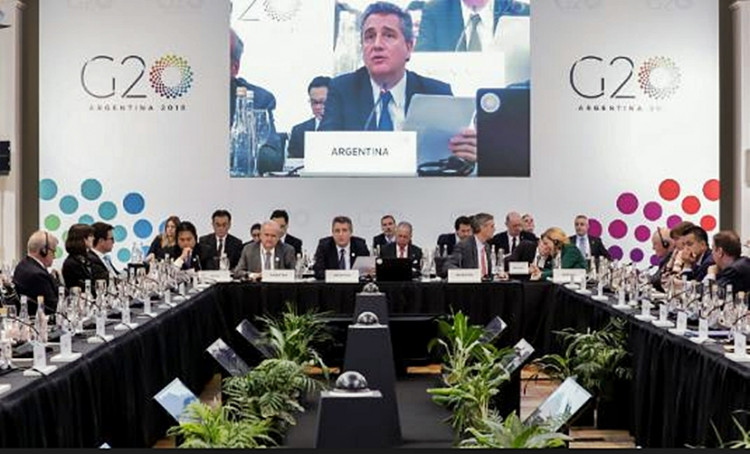Agriculture ministers from the G20 countries jointly condemned protectionism in a slap at president Donald Trump's neo-protectionist trade and unilateral non-trade protectionist measures such as subsidies destabilizing the world agricultural order.
They said they're "concerned about the increasing use of protectionist non-tariff trade measures, inconsistently with WTO (World Trade Organization) rules." Despite the direct reference to the United States, the ministers were careful not to "criticize a single country."
"We all know what happens if a single person or country doesn't adhere to WTO rules, trying to get a benefit for themselves through protectionism," said German Agriculture Minister Julia Kloeckner. "This will usually lead to retaliatory tariffs."
The rich G20 nations constitute 60 percent of the world's agricultural land and produce 80 percent of food and agricultural commodities.
The ministers who met in Buenos Aires, Argentina affirmed their commitment not to adopt "unnecessary obstacles" to trade and affirmed their rights and obligations under WTO agreements.
In their joint statement issued over the weekend, the G-210 bloc also promised to reform WTO rules, but didn't specify what steps they planned to take to improve the world food trade system.
The meeting was held in the maelstrom of rising trade tensions triggered by Trump that have roiled world agricultural markets. China and other top U.S. trade partners have implemented retaliatory tariffs on American farmers after the Trump administration put duties on Chinese goods. The Americans also slapped steel and aluminum from the European Union, Canada, and Mexico.
U.S. farmers will lose about $13 billion due to China's retaliatory tariffs. Last week, the Trump administration said it would pay up to $12 billion in subsidies, which are illegal under WTO rules, to compensate American farmers for their huge losses because of Trump's unwarranted high tariffs.
Trump's subsidies will include between $7 billion and $8 billion in direct cash relief that might be first paid by late September, said U.S. Agriculture Secretary Sonny Perdue. Despite the payments, the subsidies are "not going to make farmers whole," said Perdue.
Responding to Trump's illegal subsidies, Kloeckner said American farmers "don't need aid, (they) need trade."
"We had a very frank discussion about the fact that we don't want unilateral protectionist measures," said Kloeckner.
The ministers said they agreed to continue reforming WTO's agricultural trade rules. "Independent of all the news there was surrounding (the meeting), we managed to reach a unanimous consensus," said Argentine Agriculture Minister Luis Miguel Etchevehere.






